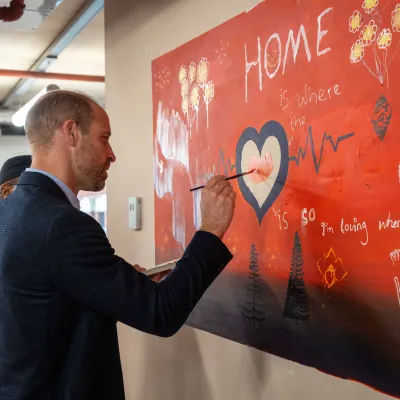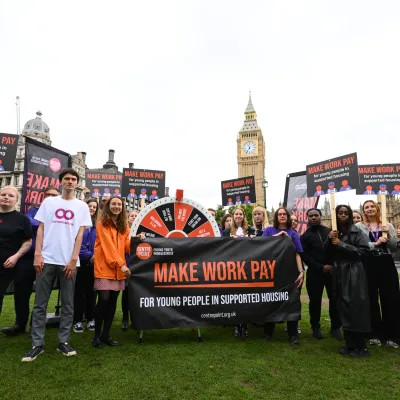The current pandemic has caused chaos in many aspects of our lives, from our finances to relationships and work. A huge number of employees have been made redundant, taken pay cuts or been placed on furlough, while a large chunk of the self-employed have similarly found themselves without work at just a moment’s notice.
So it’s no wonder that nearly a million new Universal Credit claims have been made since the pandemic began – and no doubt there will be more to come. It comes as a stark contrast to last year’s employment figures, which showed the UK’s unemployment rate had fallen to its lowest since 1975; in fact, the UK employment rate was at a high in the last three months of 2019.
When you look a little deeper, however, these numbers aren’t exactly all they seem – at first glance this number seems like a point of pride, but that pride soon begins to wilt when you consider a large number – almost one million – of these jobs were made up of zero-hours contracts.
We here at Centrepoint are no strangers to the disappointment of zero-hours contracts and their repercussions. Our report, Young, Employed and Homeless, showed many young vulnerable people will take on “precarious employment” like zero-hours contracts as it’s often the only work available to them, as they are considered the farthest from the job market. These jobs are notoriously badly paid and don’t offer stability or job security.
This volatile work environment manifests itself in the inconsistent hours zero-hours employees are asked to work from week to week, and the fact that their employer can very easily fire them and hire someone else without notice. This in turn wreaks havoc on Universal Credit payments: because of the stilted way the benefits system operates, many will receive incorrect amounts of UC because the it isn’t responsive to fluctuating hours; or the amount of benefit is constantly in flux because their employer pays them irregularly, which makes it really hard to manage money.
For example, one Centrepoint resident found his Universal Credit payments stopped after informing the Jobcentre that they had signed a zero-hours contract. As it took approximately one month for him to receive any shifts under this contract, Mitchell* was left without any money during this period. Mitchell expressed frustration at the situation and felt that Jobcentre Plus staff were being unreasonable in demanding that he “prove” he had not worked, “which is an impossible task”. Eventually he was able to make a new claim and get an advance payment, having been without money for over 40 days. This left him with debt and means that any future Universal Credit payments he receives will have £20 deducted from them until he has cleared his arrears.
Many people in the UK are about to discover these pitfalls of Universal Credit: with such a huge influx of new applicants since Covid-19 took hold, 10,000 DWP workers have been reassigned to help deal with the numbers.
It’ll no doubt shine a light on the experience of vulnerable people who are already using the system: the delays in funds, the uncertainty, the impossible targets. Many will realise that those who claim are just like them: not people who don’t want to work, but victims of circumstance.
People are likely to find the system easier to navigate at this moment in time, however – all requirements to attend appointments, undertake work preparation, undertake work search and be available for work have been temporarily suspended in response to the coronavirus outbreak. It's simple: if you can’t work, you’ll get the money. Usually it’s far trickier; there are hoops to jump through. Some hoops are easy, and then others seem like they are on fire, impossible to tackle: claimants must spend 35 hours a week looking for work or face detrimental sanctions, for example.
Because of the current situation, many people will likely find themselves out of work and on Universal Credit longer than anticipated; perhaps some will find themselves looking for precarious employment once this is over, just until they manage to get back on their feet; and it’s predicted that some might even find themselves homeless after this.
Very few positives will arise from the situation we’re in, and nearly a million people having to claim Universal Credit because of job loss is not one of them. But it will give many people a more tangible idea of what it’s like to try and claim UC, and a respect for those who do, particularly the young people who we so often see at Centrepoint who have to face the monolithic benefits system alone.






